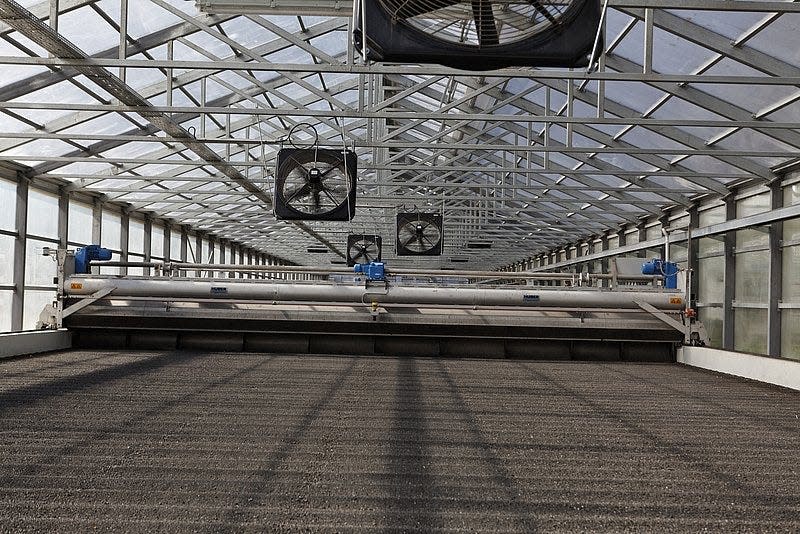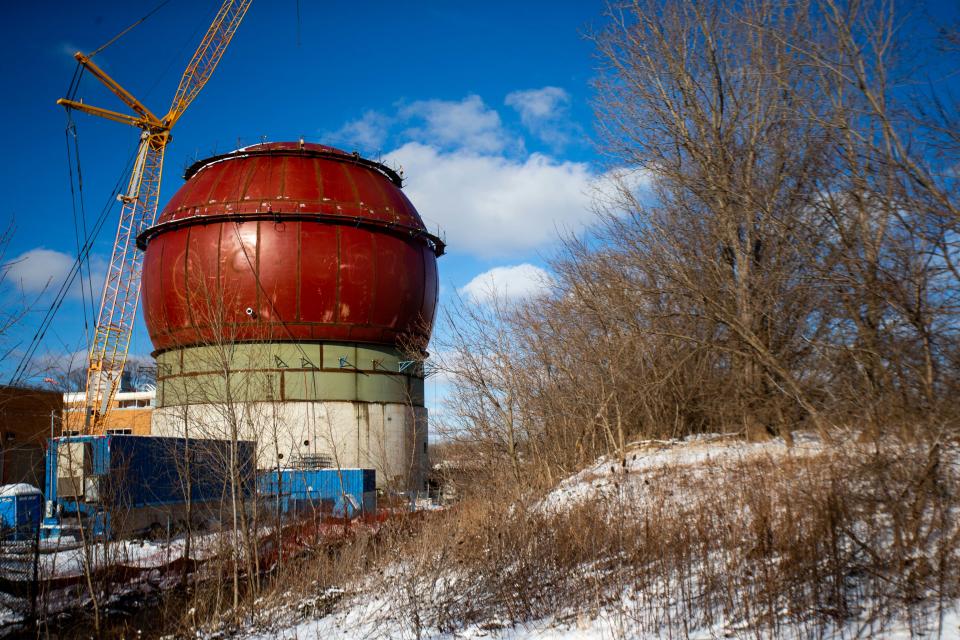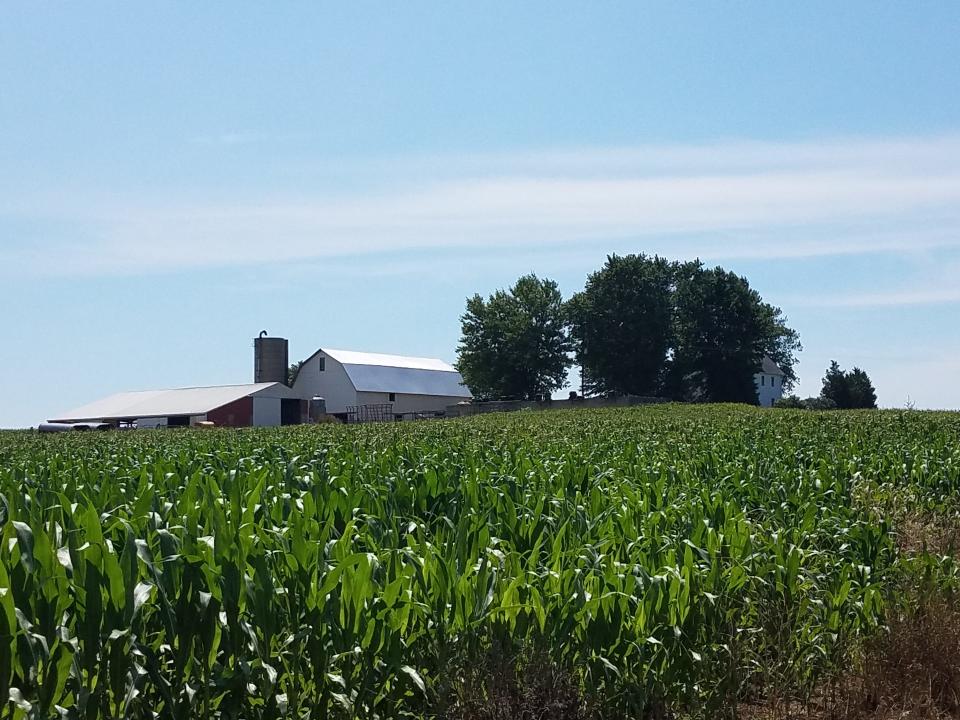Ottawa County may harness power of the sun to turn sewage sludge into fertilizer

GRAND HAVEN TWP. — The Ottawa County Board of Road Commissioners has given its blessing to a project plan to build a regional facility to process sewage sludge produced by the county's wastewater treatment plants.
The concept endorsed by the commissioners last month is a greenhouse drying facility that uses the heat and energy of the sun to dry the biosolids left behind after wastewater is treated. Once dry enough, the biosolids can be applied to farmland as fertilizer.
The Ottawa County Road Commission is applying to the state of Michigan for a low-interest loan from the State of Michigan's Clean Water State Revolving Fund to finance the project, which is estimated to cost $82.7 million.
More: Bid awarded for $34M digester project
More: Hope College gets $7.5M state grant to expand COVID wastewater testing
Traditionally, Ottawa County's several waste water treatment plants have been able to dispose of the biosolids they produce by land application on farmland and, for Holland Board of Public Works and the City of Grandville's wastewater plants, disposal at landfills.
But the plants have seen costs go up and the list of places to dispose of sludge narrow, with some of Ottawa County's utilities now trucking their biosolids out of the county and out of the state to find a landfill or farm that will accept them.
With a growing county but shrinking farmland, the utilities that only use land application for disposal are competing for fewer acres of farmland. The utilities that send some of their sludge to landfills are reporting that landfills are raising prices and limiting how much biosolids they accept due to concerns about the balance of wet and dry material in their landfills.

The same economic factors were the driving force behind Holland Board of Public Works' decision to build an anaerobic digester, currently under construction, which further reduces the amount of biosolids, boosts their quality and produces byproducts of biogas and heat that can be captured and used.
The Ottawa County Road Commission acted as lead agency on a study of the feasibility of building a regional "biosolids handling" facility to help with management of the problem each of the county's utilities is facing.
In the greenhouse model the county is exploring, the drying process would be capable of producing "Class A" biosolids, which meet the highest safety standards as determined by the U.S. Environmental Protection Agency. Class A biosolids have more options for disposal, since they are safe enough for use as fertilizer in home gardening.

There are seven wastewater treatment plants in Ottawa County that could send their sewage sludge to the facility: Holland Board of Public Works' Water Reclamation Facility, the City of Coopersville's Waste Water Treatment Plant, the City of Grandville's Clean Water Plant, the Grand Haven-Spring Lake Waste Water Treatment Plant, the City of Zeeland Clean Water Plant, the Allendale Township Waste Water Treatment Plant and the West Central Ottawa County Waste Water Treatment Plant.
The Road Commission has not settled on a location, though the project plan names the former Holland Board of Public Works' Zeeland Township landfill, 1150 56th St., as the project site, which OCRC Public Utilities Director Patrick Staskiewicz said was a placeholder. The concept calls for several greenhouses on nearly 10 acres land, according to the project plan.
Subscribe: Get unlimited access to our local coverage
During sunless winter days, a boiler would heat the floor to keep the drying process going.
Of the drying methods studied, the greenhouses had the highest up-front cost but were the cheapest to operate post-construction, Staskiewicz said.
Staskiewicz said more intensive planning and designing of the facility is the next step, in addition to approaching each community that has a participating utility for their sign-off on the plans.
Staskiewicz said the road commission wants to be ready to move forward with the plan to build the drying facility once greenhouse drying becomes the most economical option — currently, according to their estimates, it is more costly than the land application prices most utilities in Ottawa County are paying. But, according to the study, Holland already pays more per dry ton to dispose of its biosolids at landfills, between $400-$500 per dry ton, than the estimated cost of using the greenhouse, pegged at $367/dry ton in a feasibility study.
— Contact reporter Carolyn Muyskens at cmuyskens@hollandsentinel.com and follow her on Twitter at @cjmuyskens.
This article originally appeared on The Holland Sentinel: Ottawa County may build greenhouse to dry wastewater sludge

